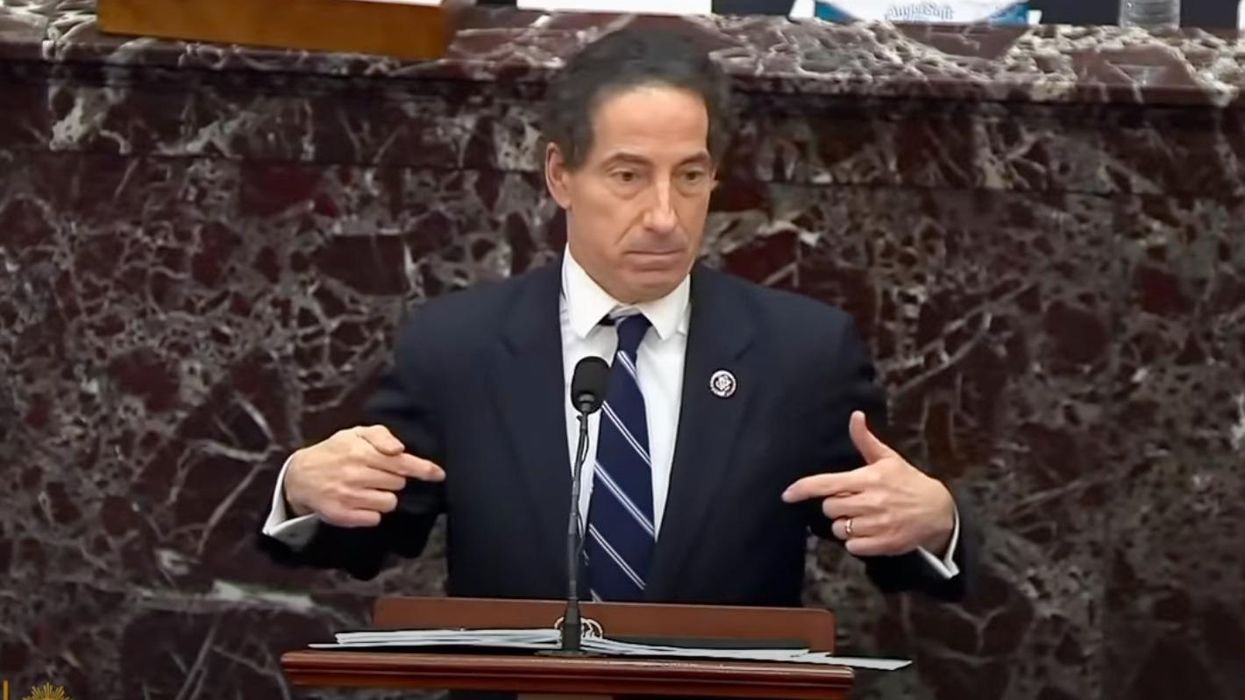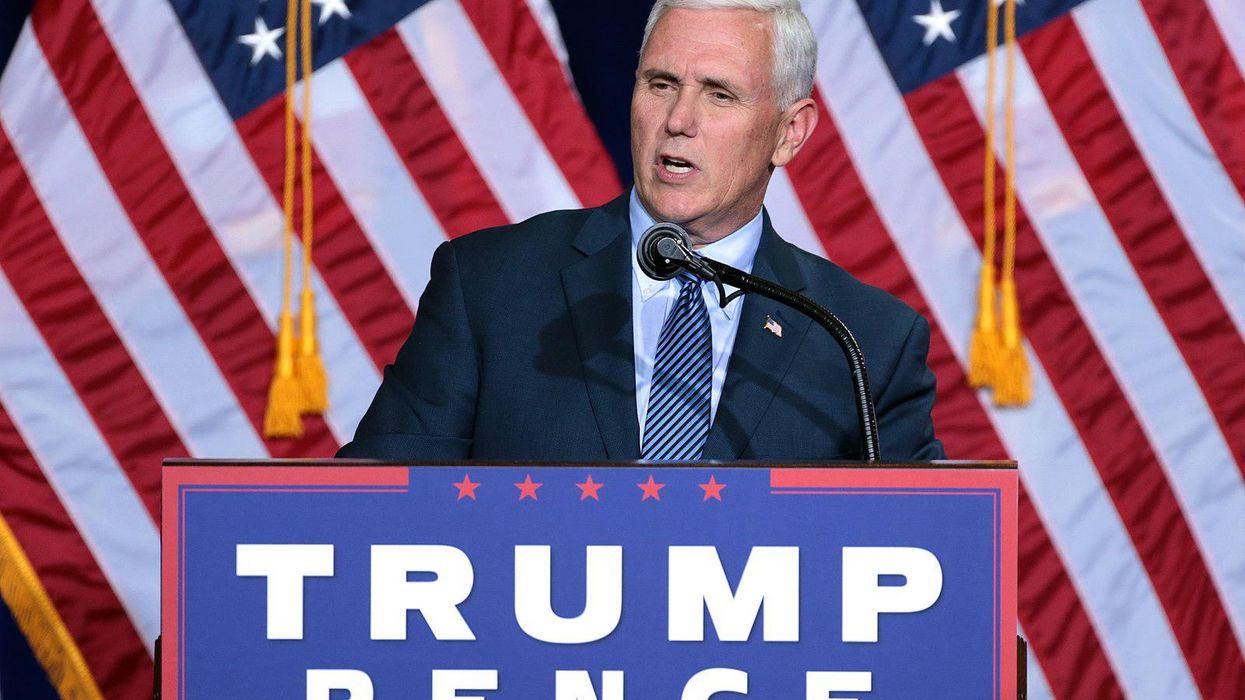How The Select Committee Wrote A Prosecution Memo For Trump's Indictment
The House Select Committee investigating the January 2021 attack on the Capitol has referred former President Donald Trump and A handful of top aides to the Justice Department’s special counsel for criminal prosecution under four statutes related to impeding the transfer of power to Joe Biden after Trump lost the election.
The focused criminal referrals and short list of named possible defendants is a sign that the select committee is hoping to achieve accountability in federal court that was not forthcoming during Trump’s second impeachment – which was triggered by the insurrection -- according to former government lawyers.
“It’s important that the committee did not overcharge here,” said Norm Eisen, co-author of a Brookings Institution report on Trump’s post-election criminality. “The committee is disciplined in not naming a laundry list of individuals but pointing out that there are additional names that should be the subject of additional review by prosecutors that have powers that the committee did not [have] to get at the truth.”
After a final hearing Monday where committee members summarized a different aspect of their findings about Trump’s effort to seize a second term and unanimously voted to send the criminal referrals to the Justice Department, the committee issued an extensive executive summary that offered more details about the coup and the evidentiary basis for its criminal referrals.
“The committee’s report reads like a prosecution memo. It documents in meticulous detail the evidentiary basis for four separate crimes against Donald Trump and some key insiders,” said Barbara McQuade, former U.S. Attorney and professor at the University of Michigan Law School. “They take each of the four crimes, they break them down into their essential elements, and they list the evidence that applies to each and every one of those elements.”
The crimes range from straightforward actions to more complicated activities. On the simpler side of this ledger, the committee cited the statute making it a crime to obstruct a government proceeding – in this case, congressional ratification of 2020’s Electoral College vote. A second charge, conspiracy to defraud the United States, refers to two months of pressure campaigns aimed at state officials and federal agencies to reverse and publicly question the election results – such as Trump telling the Georgia Secretary of State to “find” votes, and a later effort to push the Justice Department to tell states that their certified election results were inaccurate or fraudulent.
A third charge, conspiracy to make a false statement, concerned one part of that state-centered pressure campaign, where, in seven states, 84 Republicans who were following orders from Trump and his lawyers, signed and submitted fake Electoral College certificates declaring that Trump was their state’s winner.
“There is some evidence suggesting that some signatories of the fake certificates believed that the certificates were contingent, to be used only in the event that President Trump prevailed in litigation challenging the election results in their States,” the executive summary said. “That may be relevant to the question whether those electors knowingly and willfully signed a false statement at the time they signed the certificates. But it is of no moment to President Trump’s conduct, as President Trump (including acting through co-conspirators such as [lawyers] John Eastman and Kenneth Chesebro) relied on the existence of those fake electors as a basis for asserting that the Vice President could reject or delay certification of the Biden electors.”
That paragraph was a rare instance of the executive summary naming Trump accomplices as co-conspirators, McQuade said, which suggests that they, like Trump, will almost certainly face prosecution if the special counsel pursues charges. Other named probable defendants include Trump’s lawyer Rudolph Giuliani, former White House Chief of Staff Mark Meadows, and former White House Deputy Chief of Staff Anthony Ornato.
The committee also referred four members of Congress to the House Ethics Committee for refusing to testify: Rep. Kevin McCarthy (R-CA), who is seeking to become the next Speaker of the House; Rep. Jim Jordan (R-OH), who is in line to become Judiciary Committee chair; Rep. Scott Perry (R-PA) and Rep. Andy Biggs (R-AZ).
The fourth charge against Trump and his top aides and allies was the most sweeping; to “’Incite,’ ‘Assist’ or ‘Aid and Comfort’ an Insurrection.”
This accusation encompasses Trump summoning supporters to come to Washington; urging them in a rally on the mall to march to the Capitol; targeting Vice President Mike Pence, who was presiding at the ratification; and then saying and doing nothing to stop the violence for nearly three hours that afternoon.
McQuade noted that the executive summary did not detail likely defenses to its recommended charges, such as Trump claiming that his speech on the mall before the riot was protected under the First Amendment. However, she said that the committee’s discussion of that charge noted Trump’s tweets during the riot inflamed the violence, which was not protected speech.
The report said:
“As explained throughout this Report and in this Committee’s hearings, President Trump was directly responsible for summoning what became a violent mob to Washington, DC, urging them to march to the Capitol, and then further provoking the already violent and lawless crowd with his 2:24 p.m. tweet about the Vice President. Even though President Trump had repeatedly been told that Vice President Pence had no legal authority to stop the certification of the election, he asserted in his speech on January 6 that if the Vice President “comes through for us” that he could deliver victory to Trump: “if Mike Pence does the right thing, we win the election.” This created a desperate and false expectation in President Trump’s mob that ended up putting the Vice President and his entourage and many others at the Capitol in physical danger. When President Trump tweeted at 2:24 p.m., he knew violence was underway. His tweet exacerbated that violence.”
The executive summary took a more cautious stance with seditious conspiracy charges, which involve coordinating with militias and fascist gangs like the Proud Boys before January 6. If Trump is charged and convicted on this count, the 14th Amendment would prohibit him from holding office, McQuade said, although that has “never been tested” in court.
It also said federal prosecutors should look at witness intimidation, and related issues -- such as how Trump used political donations to pay for lawyers and job offers to White House and campaign aides who had been subpoenaed to testify.
While the Justice Department’s Special Counsel Jack Smith will decide whether to bring charges, the select committee’s work is not symbolic. Never before has Congress referred a former president to the Justice Department for criminal prosecution. And the voluminous cache of evidence gathered by the committee has few modern precedents, apart from the Watergate hearings in the early 1970s.
The committee's inquiry over the past 18 months held nine televised hearings, issued 400 subpoenas, conducted 1,000 witness interviews, and has amassed more than one million pages of documents and other files. One reason that only Trump and his top co-conspirators were named in the committee report is that prosecutors will try to ask or pressure accomplices with lesser roles in these actions to become prosecution witnesses.
“The dangerous assault on American constitutional democracy that took place on January 6, 2021, consists of hundreds of individual criminal offenses. Most such crimes are already being prosecuted by the Department of Justice,” Rep. Jamie Raskin (D-MD) said. “Ours is not a system of justice where foot soldiers go to jail and the masterminds and ringleaders get a free pass.”



